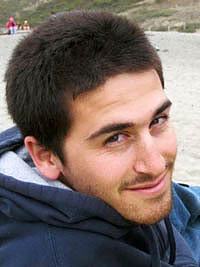Lech Lecha
Parashat Lech Lecha chronicles Avram’s development and maturation into the role that God designates for him: to be the seed of a new people whose values are rooted in justice and righteousness. God tells Avram to “be a blessing,” a cryptic phrase for the nascent leader and for us. What does it mean to “be a blessing?” As the parashah unfolds, we can trace Avram’s development into this role. His growth shows us what it means to embody justice and righteousness; to be a blessing.
Read More
